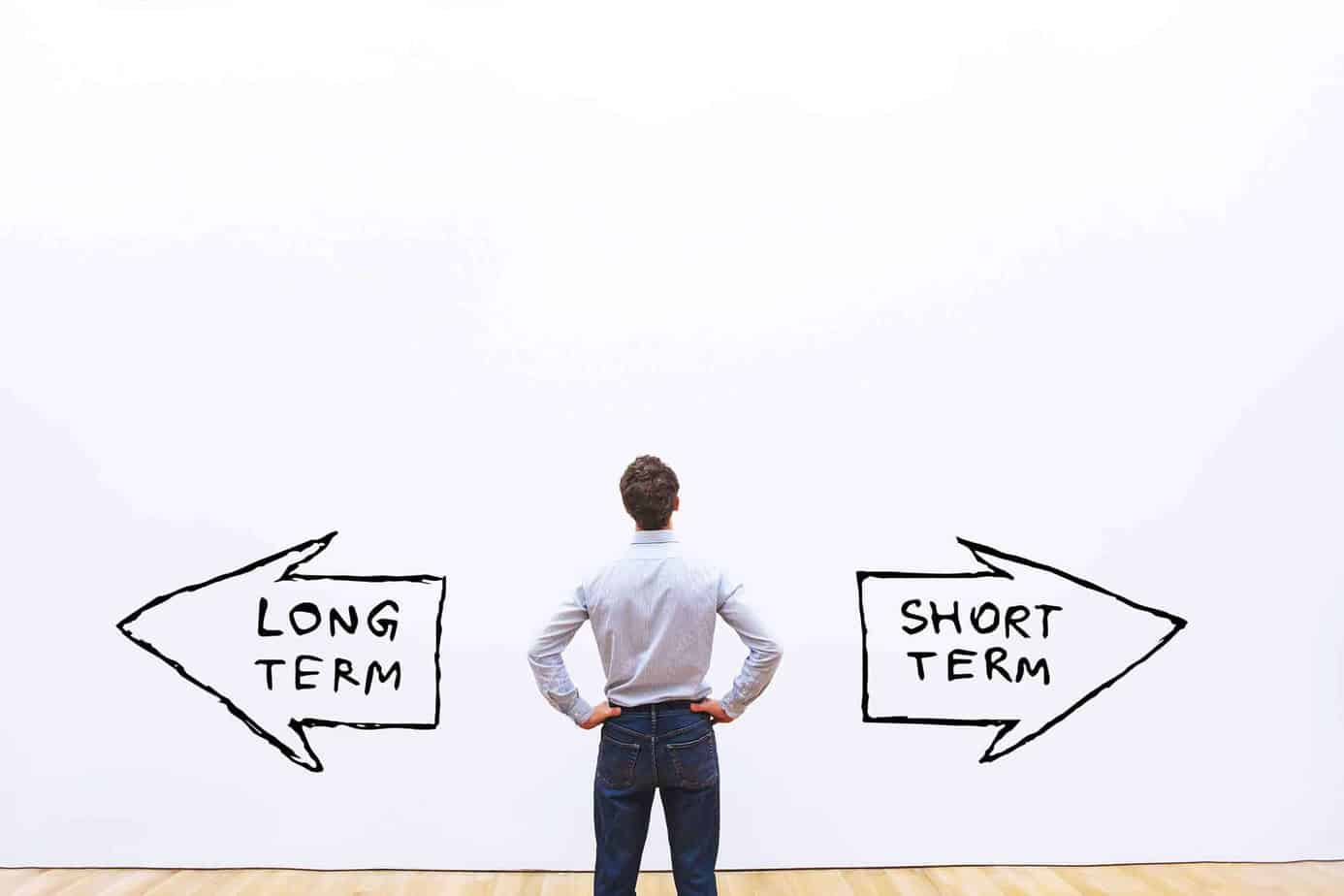Embarking on the journey of recovery from drug and alcohol addiction is a courageous step toward a brighter future. You’ve navigated the initial challenges, faced your demons, and emerged with a newfound clarity. But being anxious about the road ahead is common. You may wonder how you’re going to maintain long-term recovery after the “pink cloud” phase has passed.
Many are actively seeking a “roadmap” for continued sobriety. Read on to learn more about insights and practical advice to help you build a foundation for lasting sobriety and a fulfilling life beyond addiction.
Recovery is more than just abstaining from substances; it’s a profound transformation that rebuilds every aspect of your life. While the early days of sobriety might carry the momentum of treatment and newfound clarity, sustained recovery requires intentional strategies and unwavering commitment. Millions achieve and maintain long-term sobriety, and you can too.
The Four Pillars of a Sober Life
Think of your recovery as a building. A strong foundation is essential. That foundation is built upon four interconnected pillars: health, home, purpose, and community.
Health: Physical and Mental Wellbeing
This pillar involves making conscious choices about your physical and mental health. It’s about rebuilding your body after the wear and tear of addiction through regular exercise, balanced nutrition, and prioritizing sleep. Exercise reduces stress, improves mood, and provides a healthy alternative to the neurochemical highs of substance use. Mental health care is equally critical. Addiction often co-occurs with mental health conditions like depression and anxiety. Therapy, such as cognitive behavioral therapy (CBT), can help you identify and challenge negative thought patterns and develop coping mechanisms.
Home: A Stable and Safe Environment
A stable home provides the bedrock for recovery. Housing insecurity creates immense stress and can easily derail your progress. Creating a safe home environment means removing triggers, establishing routines that support sobriety, and cultivating emotional safety. This might involve limiting contact with those who still use substances or living in a sober living community.
Purpose: Meaningful Work and Engagement
Purpose gives you direction and meaning beyond simply not using. This pillar includes employment, education, volunteering, creative pursuits, or any activity that provides structure and a sense of accomplishment. Work provides financial stability, purpose, and engagement with supportive colleagues. The routine of work keeps you occupied and builds self-esteem.
Community: Meaningful Relationships & Social Connection
Humans are social beings. Lasting sobriety depends on being connected to others. This pillar includes family, friends, support groups, and mentors. Recovery communities provide support, accountability, and a sense of belonging. Whether it’s a 12-step program or a secular group, active involvement in a recovery community is crucial.
Building Healthy Daily Habits
Sustained recovery isn’t about grand gestures; it’s about the accumulation of small, consistent behaviors.
- Creating a structured daily routine: A structured routine provides a protective framework. Consistent patterns for waking, working, eating, exercising, attending meetings, and resting reduce decision fatigue and minimize idle time. Boredom can be a trigger for relapse. Mornings might begin with meditation or journaling. Evenings could include time with family or reflection.
- Developing healthy coping mechanisms: Relapse prevention tips often emphasize developing healthy coping mechanisms. Addiction became your default response to uncomfortable feelings. Now, you need alternative responses. If you used substances to manage anxiety, try deep breathing or exercise. If you used them to numb pain, try journaling or talking to a therapist.
- The importance of a recovery sponsor in lasting sobriety: A recovery sponsor is a mentor who has been in recovery longer than you and can guide you through the ups and downs of recovery. A sponsor offers empathy, accountability, and understanding.
- Dealing with emotional triggers in sustained recovery: Emotional triggers can be a major challenge in recovery. Learning to identify and manage these triggers is crucial for maintaining sobriety.
- Creating a structured daily routine for long-term recovery: A structured daily routine can provide stability and predictability, which can be especially helpful in managing cravings and triggers.
Building a Strong Support System
Those who maintain active involvement in support systems have better long-term outcomes.
- Building a sober social circle for lifelong recovery: One of the biggest challenges is building a community of sober friends. This might mean reducing or ending contact with old friends who still use substances and finding new connections with people who support your sobriety. Recovery communities provide natural venues for building sober friendships.
- Peer support groups and recovery communities: Peer support groups offer a safe space to share experiences, receive encouragement, and learn from others in recovery.
Relapse Prevention: Staying Vigilant
Relapse is a process, not a sudden event. Understanding the stages of relapse can help you intervene early.
Understanding the Stages of Relapse
Emotional relapse is the first stage, characterized by increasing anxiety, poor sleep, and neglecting recovery practices. Mental relapse follows, where you consciously think about using but recognize it as a problem. Physical relapse is the final stage, where you actually use the substance.
Managing Long-Term Triggers and High-Risk Situations
Triggers are people, places, emotions, or situations that activate cravings. Common triggers include stress, financial difficulties, and exposure to others using substances. Managing triggers means having a plan for approaching them safely.
Addressing Unique Challenges in Long-Term Sobriety
Long-term sobriety presents unique challenges that require specific strategies.
- Managing sobriety fatigue and emotional exhaustion: Sobriety fatigue is the physical and emotional exhaustion that can accompany recovery. It’s a normal, temporary experience as your brain and body heal. Prioritize sleep, exercise, and nutrition.
- How do I deal with boredom in long-term sobriety? Overcoming boredom requires actively building a life that feels fulfilling. Discover activities that bring you joy, set goals, and engage in meaningful relationships.
- Dealing with relationship reconstruction and family healing: Addiction creates ruptures in relationships. Rebuilding trust requires honesty, reliability, and acknowledging the harm caused. Family therapy can be beneficial.
- Addressing mental health and dual diagnosis: If you have a co-occurring mental health condition, addressing both it and your addiction simultaneously is essential.
Cultivating Personal Growth and Purpose
Personal growth and purpose after addiction are essential components of a fulfilling sober lifestyle.
- Developing a growth mindset: View yourself as capable of growth and change. See recovery as an opportunity for life transformation.
- Creating meaningful work and purpose: Find work or activities that give you a sense of purpose and contribution.
- Developing spirituality and connection to purpose: Connect to something larger than yourself, whether through religion, nature, meditation, or service to others.
Strategies for Sustained Recovery Years into Sobriety
- Continuing care and recovery management: Maintain ongoing professional support, even if it’s just periodic check-ins.
- Maintaining active community engagement: Stay connected to your recovery community.
- Periodic reassessment and adaptation: Reassess your recovery periodically and make adjustments as needed.
What Does a Successful Life in Long-Term Recovery Look Like?
Successful lasting sobriety doesn’t mean perfection or constant happiness. It means a life where substance use is no longer the answer, where you face challenges without turning to substances, and where genuine fulfillment is possible. It means taking pride in your accomplishments, rebuilding trust in relationships, and discovering that life in recovery can be better than life before addiction.
If you or someone you know is struggling with substance abuse, Mountainside can help. We offer individualized and comprehensive treatment that meets people where they are. Speak with an admissions specialist today to discover your options!
If you or a loved one is struggling with addiction, Mountainside can help.
Click here or call (888) 833-4676 to speak with one of our addiction treatment experts.

 By
By 







